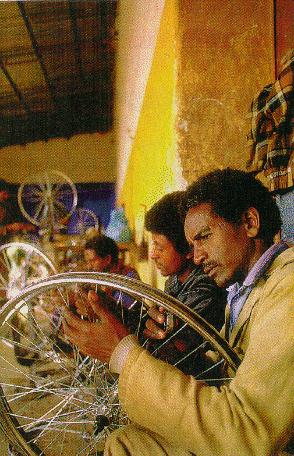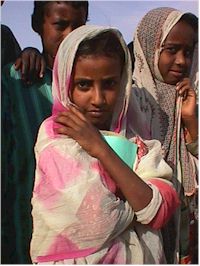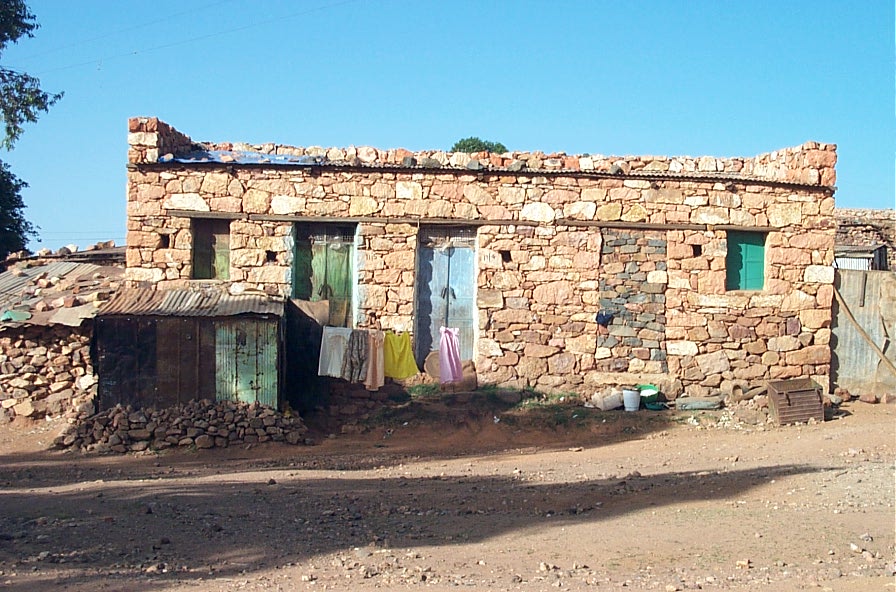 Eritrea
Today and In the Future
Eritrea
Today and In the Future
Eritrea Today and In the Future
THE REFERENDUM
Eritrea was the first country in post-colonial Africa to emerge victorious from a military secessionist war with an independent country. Following the end of a thirty-year brutal struggle with Ethiopia, the Provisional Government of Eritrea (PGE), in 1991, called for a referendum declaring the status of Eritrea as a sovereign state. This referendum was also unique to post-colonial Africa because it would mark the first time that its people would be able to decide, in a democratic manner, to brake free of its political association in favor of independence.
In order for the referendum's outcome to be considered legitimate in the eyes of the international community, it was imperative for the process to be supervised by a global delegation. To this end, the United Nations was asked to preside over the referendum. The United Nations Observer Mission to Verify the Referendum in Eritrea (UNOVER) was established in a General Assembly resolution on December 16, 1992. Working alongside the UN was a host of assistance from individual nations, international agencies, and non-governmental organizations. The most prominent of these peripheral groups was a 17-member delegation of distinguished American citizens from the African-American Institute (AAI). The AAI is a private, voluntary, non-governmental organization established in 1952 to foster development in Africa.
The vote took place on April 23,24, and 25, 1993 and the results were overwhelmingly in favor of Eritrea's independence from Ethiopia. Over 98 percent of all registered voters (1,156,280 out of 1,173,706 people) voted and nearly all (99.8 percent) voted "yes."
UNOVER and the AAI agreed that the referendum process in Eritrea was executed in a free and fair manner at every stage. Specifically, four conclusions were made concerning the referendum proceedings:
1) There was no sign of intimidation or coercion;
2) Training and organization of officials was thorough;
3) The public was properly made aware of the referendum; and
4) Citizen monitors played a critical role in the process
On April 27, 1993, Secretary General Issaias Afwerki of the Provisional Government of Eritrea declared, "Eritrea is a sovereign country as of today."
PROBLEMS
With the success of the
referendum, the Eritrean government faced new problems. Namely,
rebuilding a country with a shattered economy lrft from the
Marxist annexation by Ethiopia, and establishing a freely
democratic government in the volatile political atmosphere of the
Horn of Africa. Ethiopia had caused much of Eritrea's industrial
expansion to be mowed down, with most Eritrean factories closed
and moved to Ethiopia. Pestilence and drought caused food
supplies to be disastrously depleted and by the time of
independence in 1993, 75 percent of Eritrea's population depended
on food aid. The transportation network was also severely
damaged. Most of the road system was unpaved and the chief
railway passages linking ports and major cities were rundown.
POSSIBLE SOLUTIONS
Eritrea has few known natural resources, but it is possible and hopeful that oil and gas can be found in the area to serve as a source of capital.
An efficient transportation authority must be established to enforce the paving , restoration, and maintenance of current transportation systems, as well as create new roads.
Promoting tourism in coastal areas should be a high priority.
The coastal areas of Eritrea should be utilized by developing ports and fisheries.
Outside financial assistance is a necessity, but the dangers of debt and dependency should be thoroughly examined.
Works Cited
The African-American Institute. Eritrea: A Report on the Referendum on Independence:April 23-25, 1993.
Microsoft Encarta Encyclopedia. Microsoft Corporation. 2002.